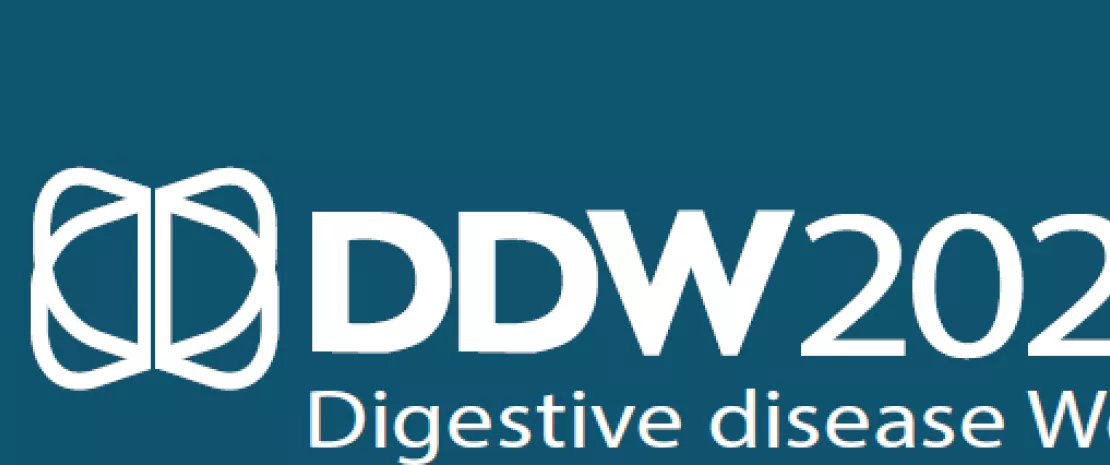Highlights from the DDW congress
By Dr. Purna C. kashyap
Division of Gastroenterology and Hepatology,
Bernard and Edith Waterman Microbiomics Program, Center for
Individualized Medicine, Mayo Clinic College of Medicine, Rochester, USA
Lay public section
Find here your dedicated section
Sources
This article is based on scientific information
Sections

About this article
In May 2024, more than 13,000 professionals interested in digestive diseases from over 100 countries attended the annual Digestive Disease Week. The meeting sponsored by the American Gastroenterology Association (AGA), American Association for the Study of Liver Diseases (AASLD), American Society of Gastrointestinal Endoscopy (ASGE) and the Society for Surgery of the Alimentary Tract (SSAT) included over 400 original lectures and 4,300 oral abstract and poster sessions encompassing innovation and cutting-edge research in areas of gastrointestinal and liver diseases. The dedicated Microbiome and Microbial Therapy section and the Center for Gut Microbiome education and Research within AGA hosted 11 scientific sessions with 33 invited talks by leading international experts and 52 oral abstract presentations highlighting cutting edge research and innovation in microbiome science. Below is a summary from some of the key presentations.
Microbiome and cancer
The inaugural Gail Hecht and David Hecht Distinguished Microbiome Lecture was delivered by Dr. Jennifer Wargo. She presented insights on the tumor microenvironment, the gut microbiome in cancer, microbial biomarkers of treatment response, and novel strategies targeting tissue, tumor, and gut microbiome to intercept and prevent cancer. Dr. Wargo summarized findings showing that gut and tumor microbiome diversity and composition are crucial prognostic markers for cancer outcomes, particularly following stem cell transplants and in patients receiving immunotherapy.

Probiotics
Dr. Wargo presented data suggesting that some probiotics may lead to worse cancer outcomes in a subset of patients, a finding also observed in animal models 1 (Spencer et al., Science, 2021). However, a live bacterial product, CBM588, combined with CTLA4 and PD1 blockade, showed benefits in treating metastatic renal cell carcinoma 2. Additionally, commensal bacteria like Bifidobacterium have been shown to promote antitumor immunity and enhance the efficacy of treatments like PD-L1 and CTLA4 blockade, highlighting the need for personalized and targeted probiotic approaches.
Antibiotics
Similar to probiotics, patients receiving antibiotics before immune checkpoint inhibitor treatment had worse outcomes 3. Conversely, targeted antibiotic approaches, such as using ciprofloxacin or metronidazole to target intratumoral bacteria that mediate resistance to cancer treatment 4, 5 may improve antitumor immunity and treatment responses.

Fecal Microbiota Transplantation (FMT)
FMT is emerging as a promising approach in cancer treatment. Small open-label clinical trials have shown that FMT can overcome resistance to immunotherapy in patients with metastatic melanoma 6, 7. FMT from healthy donors, combined with anti-PD1 treatment in treatment-naïve patients with metastatic melanoma, has been associated with high response rates.
Diet and the microbiome
Diet plays a crucial role in modulating the gut microbiome and influencing cancer treatment outcomes. Patients consuming more than 20 grams of fiber per day had better outcomes with immune checkpoint blockade 1. Ongoing studies using high-fiber and other individualized dietary management strategies show promise in improving cancer treatment responses.

Prebiotics
Dr. Wargo shared encouraging findings from interventions such as the prebiotic food-enriched diet (PreFED) and prebiotic food sources like beans in the BEGONE trial, which show how prebiotics can modulate gut microbes and reduce systemic inflammation. Additionally, Dr. Tessa Anderman discussed lessons learned from a prebiotic trial in patients undergoing allogeneic hematopoietic cell transplantation (allo-HCT). The effectiveness of prebiotics and the production of short-chain fatty acids vary based on the prebiotic used and the individual’s microbiota composition, suggesting that a combination of different prebiotics may be more effective in promoting health.
Microbiome therapeutics
Dr. Colleen Kelly outlined the recommendations made by the AGA clinical practice guideline on fecal microbiota–based therapies for gastrointestinal diseases. In immunocompetent adults, AGA suggests the use of fecal microbiota–based therapies upon completion of standard of care antibiotics but in mildly or moderately immunocompromised adults with recurrent C. difficile infection, or adults hospitalized with severe or fulminant C. difficile infection not responding to standard treatment. In addition, AGA suggests the use of conventional fecal microbiota transplant upon completion of standard of care antibiotics. In adults with ulcerative colitis, Crohn’s disease, pouchitis or irritable bowel syndrome, the AGA suggests against the use of conventional fecal microbiota transplant, except in the context of clinical trials. Dr. Jessica Allegretti outlined the current state of fecal microbiota-based therapies, noting recent updates from FDA wherein an investigation new drug application is required when using banked stool products and more comprehensive donor screening including screening for Sars-Cov-2 screening and extended spectrum betalactamase producing (ESBL) bacteria given reported systemic infection with ESBL bacteria after FMT in two immunocompromised patients. The treatment landscape for C. difficile infection is rapidly evolving with the FDA approval of two new fecal microbiota products for the prevention of recurrent CDI, REBYOTA (fecal microbiota, live –jslm) as a single-dose rectal installation or VOWST (fecal microbiota spores, live-brpk) 4 capsules taken orally once daily for 3 consecutive days, 3-4 days after standard of care antibiotics as well as an ongoing phase III trial of a rationally defined live bacterial consortia, not derived from donor stool.
A moderated debate on the role of probiotics in GI diseases included a comprehensive review of probiotic use in adults and children. The discussion focused on the path forward and while probiotics appear to lack efficacy in adult gastrointestinal disorders when considering the overall literature, their effects vary by species and strain and some patients may derive benefit from them. Additionally homemade fermented foods like yogurt, kimchi, and kefir were discussed as cost-effective alternatives. The differences in recommendation from different scientific societies regarding probiotic use appear to stem from different methodologies and the types of clinical studies that are considered when developing recommendations. Direct to consumer microbiome tests are gaining popularity among patients especially to guide probiotic therapy, but the panel concluded that currently there is no proven clinical benefit, and they should not be recommended. However, there is a potential for future uses such as to track microbiota changes in an individual after interventions. A central theme which emerged from all these discussions was centered around the need for personalized approaches to microbiome therapeutics.

